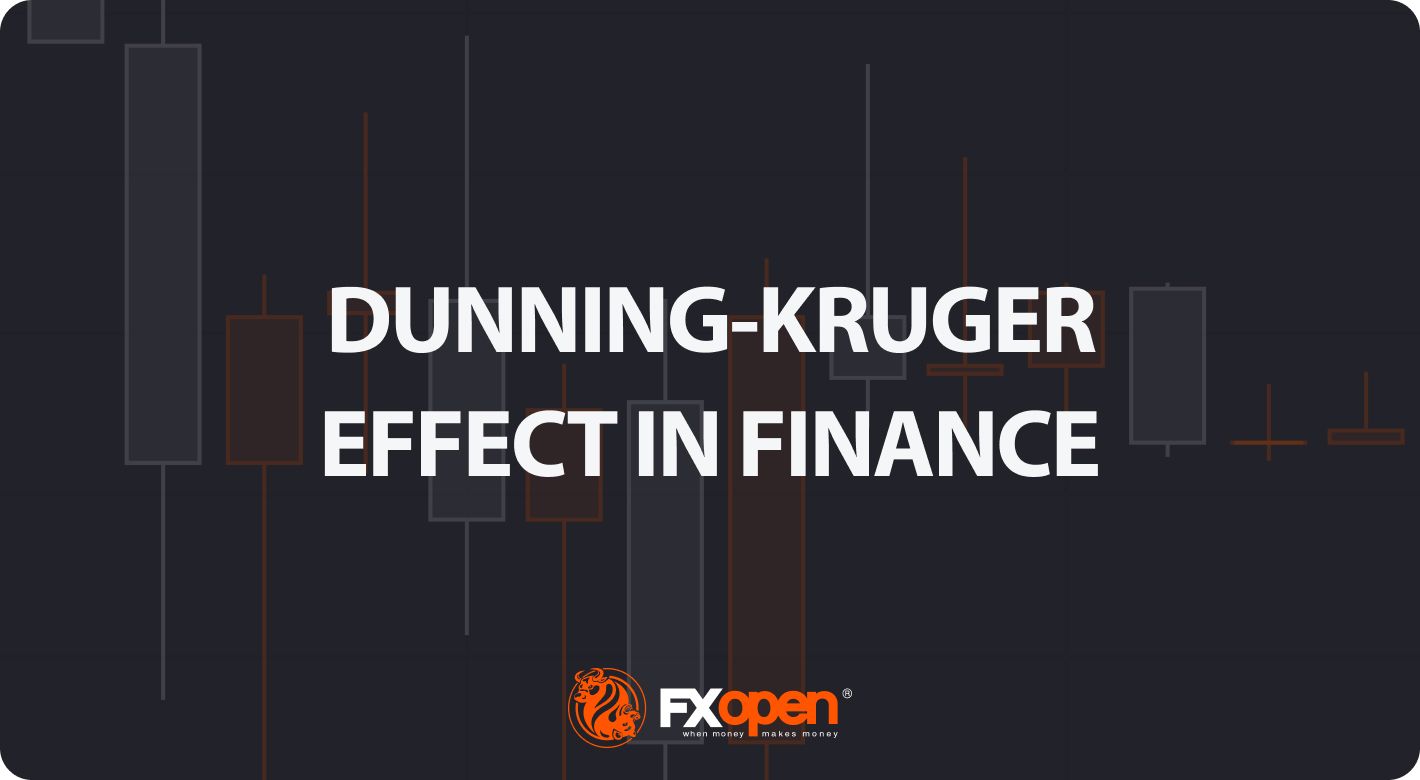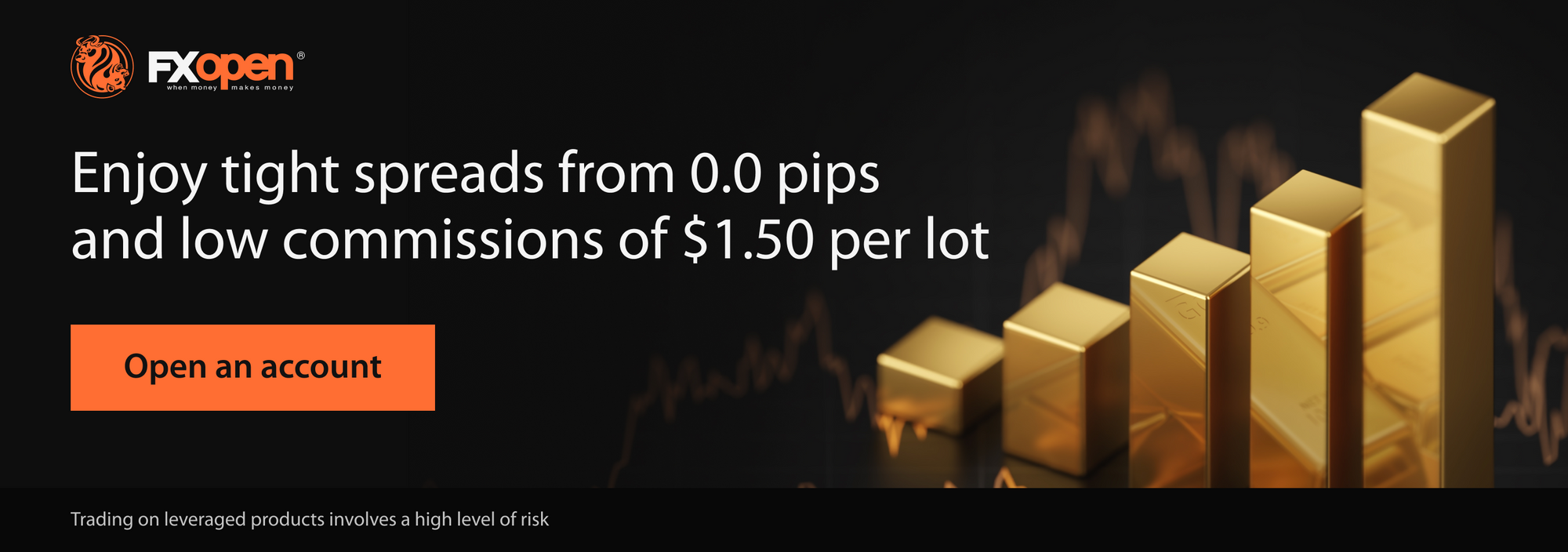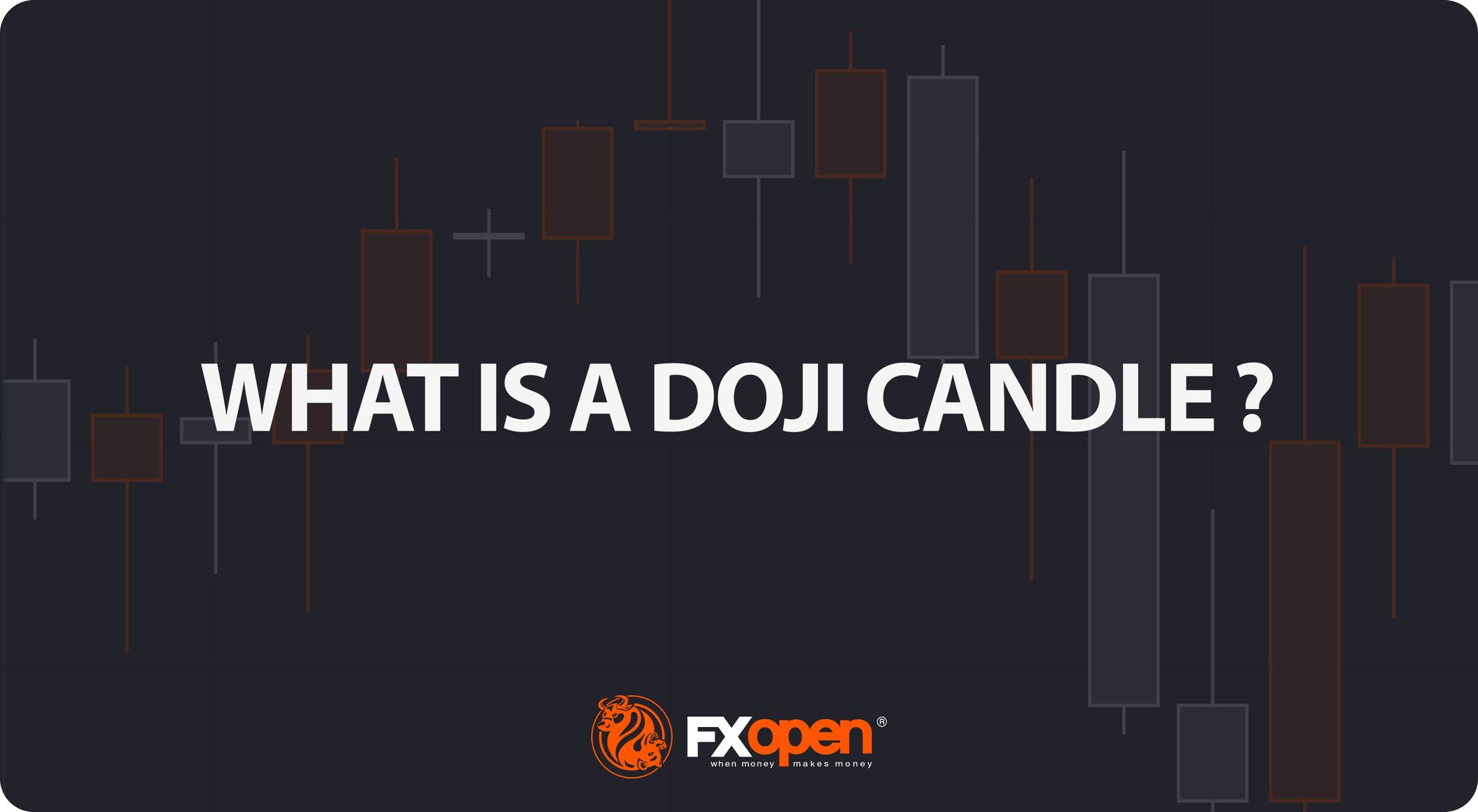FXOpen

The Dunning-Kruger effect, a psychological phenomenon named after social psychologists David Dunning and Justin Kruger, examines the cognitive bias in which people with low ability to perform a task overestimate their capabilities. This effect was originally identified in a study in 1999. The cognitive bias has far-reaching consequences, especially in finance and trading. This FXOpen article explores the Dunning-Kruger effect meaning and its real-life manifestation.
Understanding the Dunning-Kruger Theory
The Dunning-Kruger effect definition is as follows: it is a cognitive bias in which people with limited knowledge or competence in a particular area overestimate their abilities.
So, as a trader, how do you know if you have the Dunning-Kruger effect? It manifests in traders through a dualistic challenge. Firstly, there is an overestimation of one’s trading skills — a misplaced confidence that can lead to risky decision-making. Simultaneously, there’s a tendency to underestimate the inherent risks associated with financial markets.
Traders influenced by this effect often display behaviours such as excessive trading, overvaluation of personal judgement, and an unwillingness to seek advice or consider alternative viewpoints. They may place an overemphasis on recent successful trades without acknowledging the role of chance or external market factors.
Dunning-Kruger Effect Explained: Psychological Side
Psychological factors underpinning the Dunning-Kruger effect include a lack of metacognitive ability, meaning individuals affected struggle to accurately assess their own competence. This cognitive bias creates an erroneous self-perception that can lead to financial losses. It is not exclusive to novices; even experienced traders can fall victim to it, particularly if their high performance in previous markets leads to overconfidence.
Effective self-assessment and feedback mechanisms are critical in identifying and combating this cognitive bias. To avoid making risky trades based on overconfidence, traders cultivate self-awareness, regularly evaluate their decisions, and seek constructive criticism. Additionally, fostering an environment that encourages open communication and feedback within trading communities is essential in mitigating the impact of this effect.
Is the Dunning-Kruger Effect real? Now that you know the Dunning-Kruger syndrome meaning, let’s discuss whether it deserves attention and whether it is even real. The short answer is yes: it is a well-established and empirically supported psychological phenomenon. The original study by David Dunning and Justin Kruger was only the beginning of scientific research. Subsequent studies have consistently provided evidence for the existence of this cognitive bias.

Dunning-Kruger Effect Examples
The cognitive bias that affects individuals’ ability to assess their own competence is a real and impactful phenomenon. Here are some examples illustrating its presence in the financial world.
Overconfident Day Trader
Imagine a day trader who experiences a series of effective trades during a bullish market. The trader begins to overestimate their skills, attributing the high performance solely to their expertise. As a result, they may increase trade frequency and take on higher-risk positions. Such complacency may lead to considerable losses when market conditions change.
Underestimation of Market Risks
A seasoned trader who has been through many bull trends can fall victim to the Dunning-Kruger effect by disregarding the risks inherent in financial markets. Past good performance creates a false sense of security, causing the trader to overlook the unpredictability of market movements. Underestimating risk can result in a trader failing to properly diversify their portfolio or adopt risk management strategies.
Inability to Learn from Mistakes
Traders susceptible to the Dunning-Kruger effect may struggle to learn from their mistakes. Instead of critically evaluating and adjusting their strategies in response to losses, they may attribute failures to external factors. This reluctance to recognise and learn from mistakes may perpetuate a cycle of poor decision-making, hindering financial growth over the long term.
Disregard for Professional Advice
People experiencing the Dunning-Kruger effect often show a reluctance to seek or heed professional advice. A self-confident trader, convinced of their superiority, may ignore the opinions of financial advisors or market analysts. This disregard for outside perspectives can lead to missed opportunities as well as increased exposure to risks that could be mitigated with a more open-minded approach. Still, it’s worth maintaining critical thinking and using the advice of others in conjunction with your own market analysis.
Factors Amplifying the Dunning-Kruger Effect in Trading
Market conditions and recent successes, confirmation bias, and social dynamics within trading communities can greatly boost a trader’s confidence, clouding their minds and encouraging them to take excessive risks. Let’s see how it works.
Market conditions, particularly during bull markets, can amplify the effect. High performance in such favourable conditions may lead traders to believe their skills are infallible, overlooking the temporary nature of their triumphs. It’s crucial to recognise that favourable markets can mask underlying deficiencies in trading strategies.
Then, confirmation bias, where traders seek information that confirms pre-existing beliefs, coupled with selective perception, reinforces overconfidence. Traders may ignore warning signs or dismiss alternative viewpoints, further exacerbating the bias. Challenging these beliefs is paramount for objective decision-making.
Additionally, the influence of trading communities contributes to the Dunning-Kruger effect. If a community fosters an environment that glorifies risky behaviours or lacks mechanisms for accountability, individuals are more likely to succumb to overconfidence. Encouraging a culture of continuous learning may counteract these negative social influences.
Final Thoughts
You might be asking: “What’s the Dunning-Kruger effect, and how can it relate to my experiences?” This phenomenon underscores the importance of self-awareness and a pragmatic assessment of one's capabilities as fundamental elements in the process of making well-informed decisions. Recognising the potential for overconfidence and actively seeking diverse perspectives and feedback are essential strategies for mitigating the impact of the effect.
You can explore our blog to learn more about trading biases and ways to overcome them. And, if you want to continue your trading journey, you can open an FXOpen account and use the TickTrader trading platform to access advanced charts and trade various assets on a single account.
This article represents the opinion of the Companies operating under the FXOpen brand only. It is not to be construed as an offer, solicitation, or recommendation with respect to products and services provided by the Companies operating under the FXOpen brand, nor is it to be considered financial advice.
Stay ahead of the market!
Subscribe now to our mailing list and receive the latest market news and insights delivered directly to your inbox.








